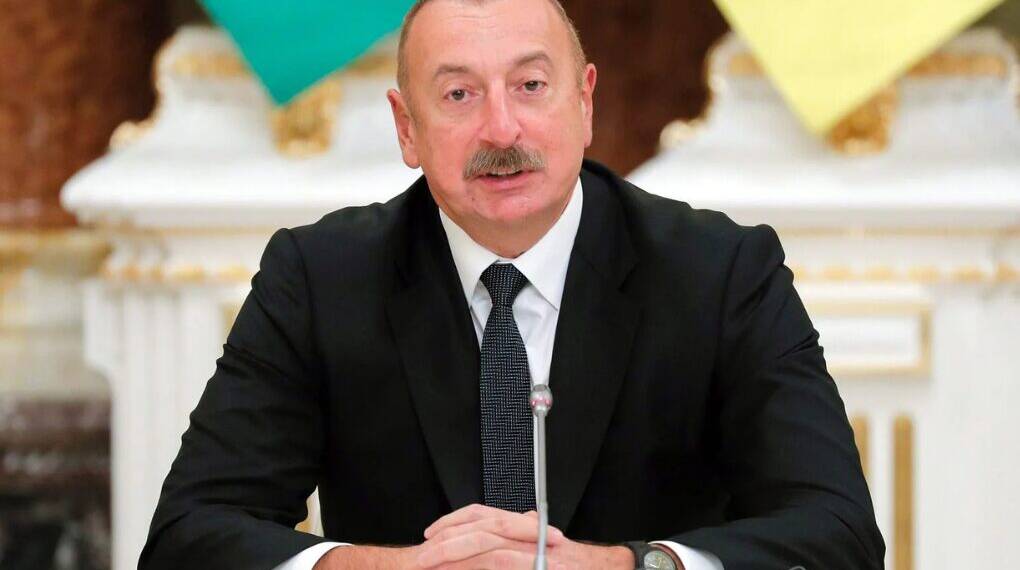In August 2025, a diplomatic firestorm erupted between Azerbaijan and Russia, ignited by Azerbaijani President Ilham Aliyev’s pointed remarks about the Soviet era. During an interview with Al-Arabiya, Aliyev described Azerbaijan’s incorporation into the Soviet Union in 1920 as an “invasion and occupation” by Bolshevik forces, accusing them of dismantling the Azerbaijan Democratic Republic (1918–1920) and deceiving the populace with unfulfilled promises of prosperity.
The comments, part of a broader narrative of Azerbaijani sovereignty, provoked a sharp response from Russia, culminating in the publicized release of Soviet-era documents tying Aliyev’s father, Heydar Aliyev, to the KGB—a move seen as a direct counterattack on Azerbaijan’s leadership.
Aliyev’s Critique of Soviet Rule
President Ilham Aliyev’s statements framed the Soviet annexation as a colonial act that interrupted Azerbaijan’s early independence. He highlighted the Bolsheviks’ tactics—promises of factories, land, and freedom—that masked their intent to subjugate and divide Azerbaijani territories. This narrative aligns with Azerbaijan’s post-2020 push to reassert its historical sovereignty, particularly after its military success in Nagorno-Karabakh in 2023.
Aliyev’s remarks were not merely a historical reflection but a critique of lingering Russian influence, especially amid strained ties following incidents like the December 2024 Azerbaijan Airlines Flight 8243 crash, attributed to Russian air defenses, and the deaths of Azerbaijani nationals in a Russian police raid in early 2025.
Russia’s Retaliation: The KGB Documents
In response, Russian media outlets, including Tsargrad TV, accused Aliyev of “rewriting history” and stoking “anti-Russian propaganda.” The Kremlin’s counteroffensive took a personal turn when Russian sources circulated an image of a Soviet-era KGB identification card belonging to Heydar Aliyev, Ilham’s father and Azerbaijan’s president from 1993 to 2003.
The document confirmed Heydar’s rank as a Major General in the KGB and his role as Chairman of the KGB for the Azerbaijan SSR from 1969 to 1982. It underscored his deep involvement in Soviet security operations, including intelligence gathering in Iran, Turkey, and Afghanistan, and domestic suppression of dissent.
While Heydar Aliyev’s KGB tenure is well-documented, the timing of the document’s publicity—amplified across platforms like X in early September 2025—served as a pointed rebuke. Russian commentators framed it as evidence of hypocrisy, given Ilham Aliyev’s criticism of the very Soviet system his father helped enforce. No formal declassification from Russian state archives was announced, suggesting the “release” leveraged existing records for political effect.
Azerbaijan’s Pushback
Azerbaijan’s parliament swiftly condemned Russia’s response as a “massive information campaign” aimed at distorting Aliyev’s words and inciting anti-Azerbaijani sentiment. Baku dismissed the KGB document as an attempt to deflect from its historical grievances and undermine bilateral relations. Azerbaijani officials have increasingly positioned their country as a sovereign actor, diversifying alliances with the West and Turkey while reducing reliance on Moscow.
Heydar Aliyev’s Soviet Legacy
Heydar Aliyev’s career in the Soviet system was illustrious. Rising through the ranks of the KGB, he became First Secretary of the Azerbaijan Communist Party (1969–1982) and later a member of the Soviet Politburo in Moscow.
His security background facilitated his political ascent, and even after Azerbaijan’s independence in 1991, his Kremlin connections bolstered his leadership. For Russia, highlighting its KGB role serves to remind Azerbaijan of its Soviet-era integration, challenging the narrative of victimhood.
Current Dynamics and Implications
The spat reflects broader geopolitical shifts. Azerbaijan’s growing ties with NATO, the EU, and Turkey, coupled with its energy partnerships, signal a pivot away from Russian influence. Moscow, meanwhile, is focused on maintaining leverage through energy deals and security arrangements in the Caucasus.
The lack of further escalation as of September 24, 2025, suggests both sides are wary of fully rupturing ties, but the incident underscores persistent mistrust.
The Azerbaijan-Russia row over Soviet history reveals the fragility of their post-Soviet relationship. Ilham Aliyev’s critique of Bolshevik “occupation” and Russia’s retaliatory spotlight on Heydar Aliyev’s KGB past highlight how historical narratives can fuel modern diplomatic conflicts.
As Azerbaijan asserts its independence and Russia defends its regional influence, such tensions may resurface, with implications for stability in the South Caucasus.








